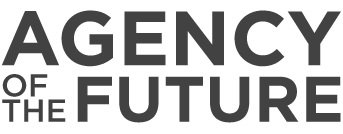Launching Cooperators United
Paul has recently returned from Warsaw where he spoke about the future of cooperation at the General Assembly of European Cooperatives and participated in the pre-launch of a new venture, Cooperators United, in partnership with Cooperatives Europe.
I spend my whole life working on driving collaborative advantages for clients and partners so I like to think I have a fairly cooperative mind-set, but my first involvement with the cooperative sector didn’t come until the start of 2011 when I first heard about the United Nations International Year of Cooperatives and discovered how much larger a scale the movement operated on than I had realized.
I was taken aback by some of the statistics that get cited, such as the fact that one in seven people on the planet is a member of a cooperative. But at the same time I had a sense that a lot of the great work of cooperatives must somehow be as if hidden in plain view.
I saw the opportunity for the movement to grow much further through greater differentiation by extending the concept of co-operation to go beyond member ownership and formal democratic decision-making to really build on it’s characteristics as a movement of businesses based on collaboration for the common good, by making itself the natural home for many of the new forms of working together for the common good that have emerged in recent years, such as open innovation, co-creation, mass participation and networked engagement.
I was asked to develop that thinking to catalyse the start of the process of developing the Blueprint for a Cooperative decade and used that opportunity to develop a model of “open cooperation”, that was used to catalyse the creation of the Blueprint for a Cooperative decade, which is the cooperative sector’s global strategy as convened and developed through the global apex organization, the International Cooperatives Alliance.
I’ve also been working with Cooperatives Europe, and Cooperatives UK, the trade bodies representing cooperatives in the UK and across the continent on the creation of a new platform, to be called Cooperators United, to foster open cooperation on the ground.
We’ll be building the activity streams and service offerings of Cooperators United over the coming months, but some of the kinds of activity we are planning include:
• Creating an open network to enable people to contribute their talent to initiatives in the movement that interest them and create societal benefit. You may have heard of Googles’s 20% time – the time each Google member of staff has available to work not on their day job but on any topic of interest that may lead to new insight for innovation. What would it look like if cooperators took even half of that time to maximise their own learning and development and fulfil their creative potential by contributing their talent and professional skills to a project that they choose personally that really inspires them? And what could that do in terms of helping larger cooperatives to really engage their staff in their founding ethos?
• Creating a more efficient matching system to connect needs and opportunities in the cooperative sector with resources, capabilities and knowledge, contributing to a more open innovation eco-system in the sector and for people to access who wish to work with the sector. What would it look like if everyone preferred to do business with cooperatives because they are so much more… cooperative?
• Working together and with thought-leaders and practitioners from inside and outside the cooperative sector to deliver workshops, creative development services and events designed to support progressive people and organisations in developing collaborative advantage through their business activities and working practices.
• And working with the people and organisations most supportive of this agenda to co-create new initiatives to create business success and social good through open cooperation.
The more formal launch of Cooperators United is scheduled for the International Summit of Cooperatives in Quebec in October.

